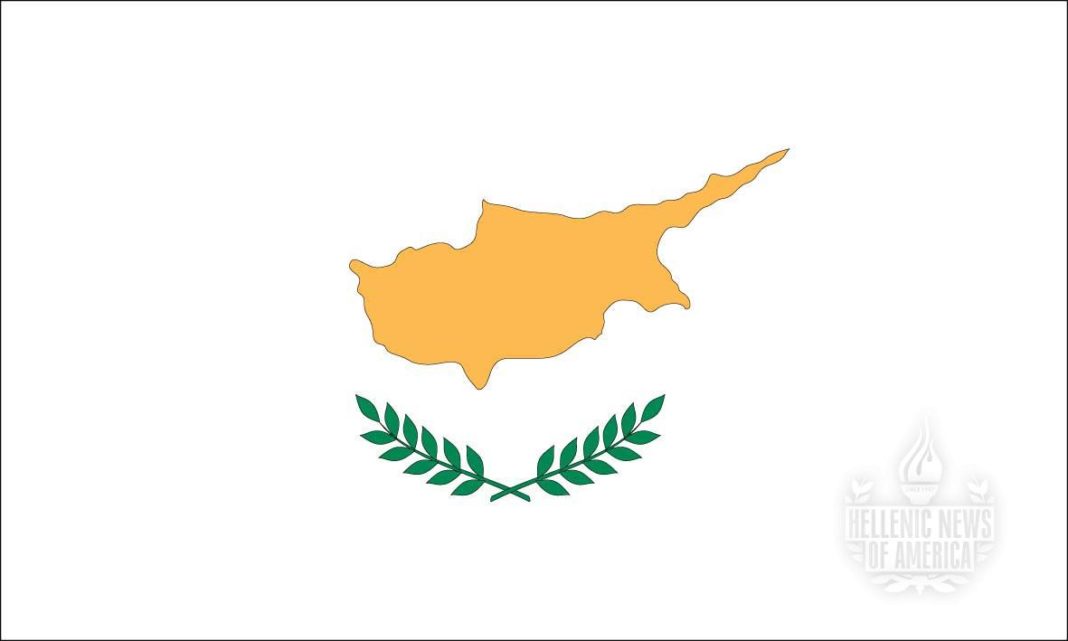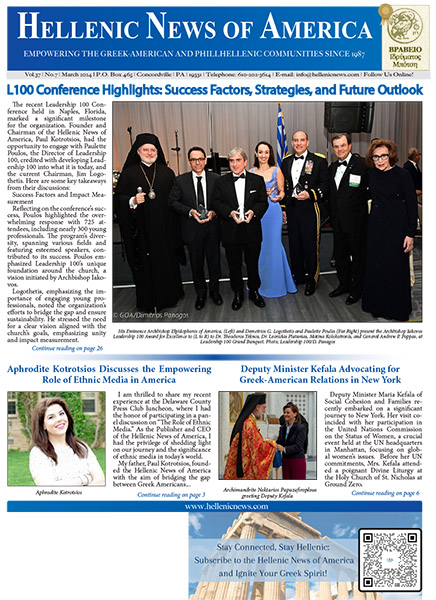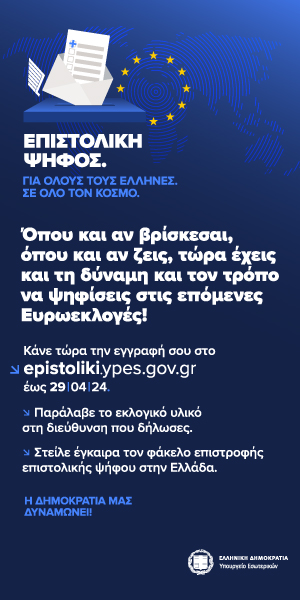
By Alexandros LaBua
It has been thirty-seven years since the Turkish invasion of Cyprus. Yet, some 40,000 Turkish troops still maintain a presence on the island, making the Turkish occupied area one of the most militarized places in the world when compared to the number of civilians living there. While the Cyprus question remains unresolved, Greece has undergone sweeping change and currently finds itself in the midst of an economic crisis which may be the beginning of the most difficult and volatile era of its modern history.
The AHIF College Student Foreign Policy Trip to Greece & Cyprus gave me firsthand exposure to the political dynamics of these two nations, their policies, and how they relate to the United States. The program coordinated a series of meetings at which we were briefed by government officials, religious leaders, representatives from think-tank organizations, members of academia and the private sectors of both countries. The closing remarks of nearly everyone we met echoed a call for our generation to help shape the future of our ancestral homeland. Given the decisive role U.S. policy plays in the eastern Mediterranean and the ostensible influence we as American citizens have over that policy, this message was meant to resonate and inspire us. My experience overseas reinforced this view that the U.S. should reexamine its relationship with Turkey and take a more active role in forging a just solution to the Cyprus issue.
Ambassador Andreas Kakouris, director of the Office of the Foreign Minister in Cyprus, depicted current U.S.-Turkey relations as a “marriage of convenience” in which the U.S. seems fixated on not alienating Turkey. As a consequence, U.S. policies in the region, particularly vis-à-vis Cyprus, are consistently at odds with American democratic values such as the rule of law and basic principles of human rights.
We spent a day touring the occupied territory of Cyprus, an area that is only recognized by Turkey and that the UN has repeatedly declared to be an illegal and secessionist entity. With no international legitimacy, the occupied area doesn’t have any trade partners or an economy of its own; thus, the region’s impoverishment and vast underdevelopment comes as no surprise. To make matters worse, the Turkish government has sent over 200,000 Turkish settlers to live there. This practice breaks a wide range of international laws, is contrary to the Geneva Convention, and is radically changing the island’s demography.
Since the invasion and occupation began, approximately one-third of the Turkish Cypriot population emigrated from the island. Most of the remaining Turkish Cypriots disassociate themselves from the ethnically distinct mainland settlers and would prefer to see the island unified so they can absorb EU citizenship and improve their socio-economic status. Ironically, the Turkish government is doing just the opposite in its efforts to legitimize the occupied area.
Perhaps the most disturbing part of our tour was to see the overall attempt to rid the northern part of the island of its Greek identity. The Helsinki Commission, the Law Library of Congress, and the U.S. Commission on International Religious Freedom have all documented the desecration of hundreds of churches throughout the Turkish Cypriot side. Since the borders opened in 2003, Greek Cypriots who fled the Turkish invasion in 1974 have revisited their villages to find their homes razed, settlers living on their property, and in some cases the cemeteries of their relatives demolished.
At our briefing at the American embassy in Nicosia, we were told that U.S. policy was to let the Cypriots write their own future. This approach however tacitly accepts Turkey’s illegal settlement and continued military occupation of the island, which are two crucial stumbling blocks in the framework of negotiations. Given the regional influence Turkey enjoys and the strength of its lobby in Washington, U.S. policy is unlikely to change anytime soon. Unfortunately, this is not the only instance where U.S. foreign policy favors American economic and geostrategic interests over the protection of human rights.
Looking ahead, despite the crisis facing the Eurozone today, the EU offers a better chance at moving forward. Although the prospect of EU membership is diminishing for Tayyip Erdogan’s government, the Turkish accession process allows Greece and Cyprus to constructively engage Turkey under the auspices of the EU’s criteria.
In a recent trip to the region, Secretary of State Hillary Clinton highlighted the importance of energy, noting that one way Greece can attract investment and resuscitate its economy is to take initiative in the advancement of clean energy technologies. In Cyprus, agreements have already been signed for hydrocarbon exploration. This could potentially serve as a catalyst for political change as profits from any discovered resources could be shared with the north in exchange for unification.
The far-reaching implications of the crisis unfolding in Greece show us just how interdependent the world has become. Global integration requires rules and institutions to govern international relations. The U.S. and EU need to use their influence to make this process work justly and equitably. At the same time, Greece and Cyprus must take action to strengthen their influence in Washington and take advantage of their positions in the EU to gain more leverage.
___________________Alexandros LaBua received his bachelor’s degree in International Affairs from George Washington University in 2009. He has just returned from California where he had been working for a startup green energy company and is currently pursuing graduate studies in energy management and policy at the School of International & Public Affairs at Columbia University, Class of 2013. In June 2011 Alexandros was one of 14 Greek-American students who participated in the third annual AHIF Foreign Policy College Student Trip to Greece and Cyprus, sponsored by the American Hellenic Institute Foundation.







